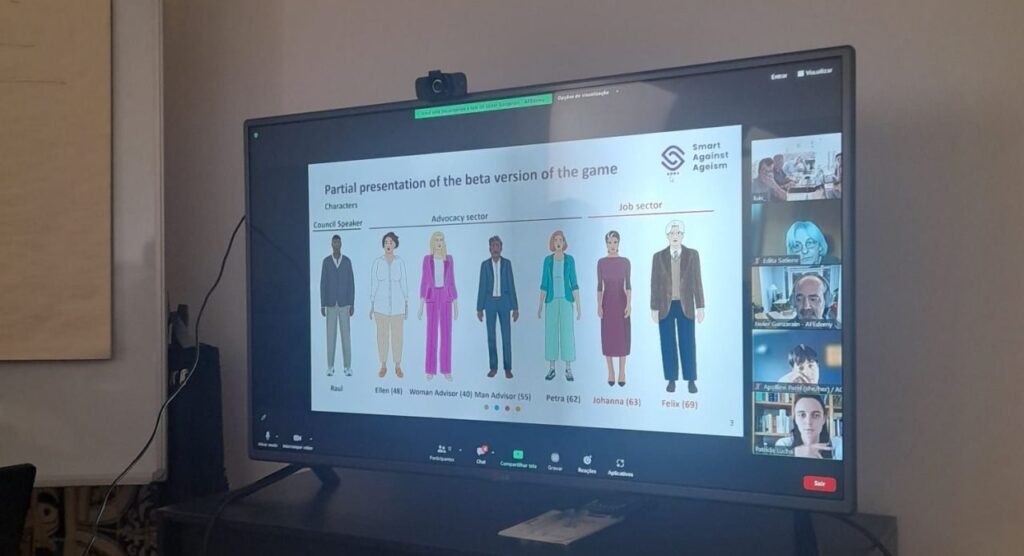Juliana Louceiro

On June 27th and 28th, the partners of Smart Against Ageism project were together in Coimbra to the fourth hybrid Transnational Project Meeting. SHINE hosted members from ISIS, AFEdemy and EAEA in-person, and members from AGE Platform Europe, ABA and SIC participated online.
Besides detailed information about the management of the project and sharing and promotion activities, important discussions took place regarding the development of the game as well as the first steps for curriculum development.

With the contribution of all partners, the characters of the game are now finalised, and only few changes are needed in the scenarios. A colourful and lovely work! The beta version is already in development and will be tested at the end of August! In October, the game will be presented in workshops in all the partners countries!
Now we will start the development of the toolkit for trainers, that will include a curriculum and a trainer manual with instructions on how to use the game in an educational context. During the next months, the consortium will gather and develop contents focused on measures and guidelines for dealing with ageist attitudes and to introduce the SAA educational platform, the workshop curriculum and training aids, and a validation and certification of the informal learning through SAA.
On the second day of meeting, the partners went to Machado de Castro National Museum, which is one of the most important fine arts and archaeology museums in the country, presenting important collections of painting, sculpture and decorative arts, covering a history of over two thousand years. Furthermore, the museum has a genuine concern for promoting proximity with the community. In this sense, it has been developing the project “EU at the MusEU” for the last 12 years.

This project was presented to the partners by the Director of the Museum, Dr. Lurdes Craveiro, and the responsible for the project, Dr Virgínia Gomes. Once a month, people with cognitive impairment as Alzheimer and other forms of dementia and their caregivers visit the museum, where through a person-centred approach, they improve their cognitive, social and cultural competencies. The museum becomes more than a place to visit and learn about arts and culture, but a space where these families find comfort, support and caring.
This was a great way to end our Transnational Partner Meeting, very motivated to continue working on this project!